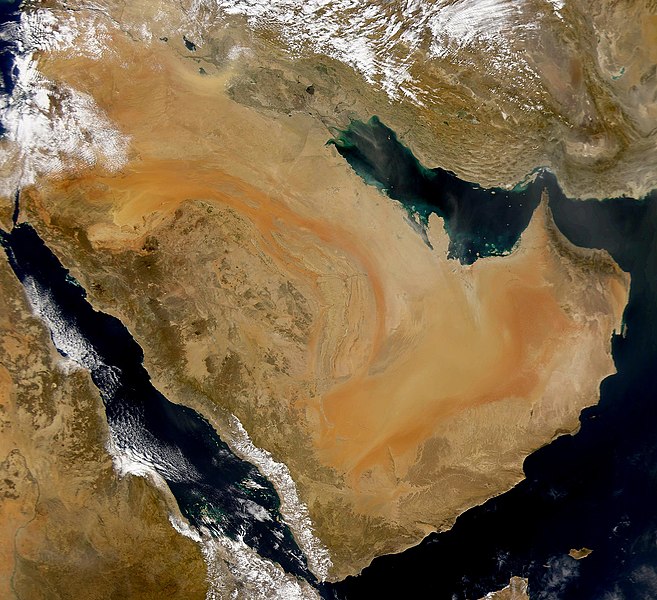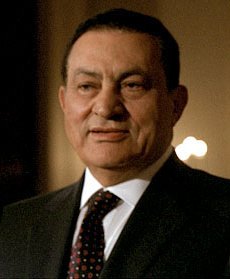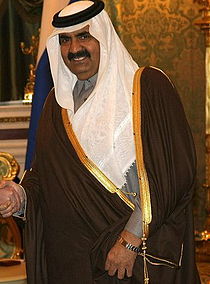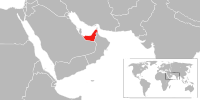While I strongly favor the release of secret information, after all it is a matter of transparency, democracy and horizontality in information-sharing and decision-making, these cables are at best entertaining.
Quite frustrating is that the US policy is always depicted in positive light - miraculously so (woot, not even a "let's nuke those..." bravado?!), and Israel is also essentially unscathed, as are European leaders in general.
Instead the Arab panic and deep dislike of Iran and their use of the Palestinian, Lebanese and Iraqi conflicts as battleground for such quarrels, always leaning on a USA that seems reluctant to take adventuring steps, is very much highlighted, as is the drift of Turkey towards Iran and Russia.
I was a good deal of yesterday and tonight reading through some of the many thousands cables and here follow my first picks. But do not expect anything too revealing, except maybe the weakness of Egyptian and Arab governments in general and their reliance on the USA-Israel tandem for everything.
France about Russia - Sep 16 2009
 |
| Medvedev is mentioned often |
Loras predicted that substantial Russian under-investment in energy extraction infrastructure was such that Russia would not be able to meet European demand in four or five years. He observed this created an opportunity for Russia to have even more leverage over a Europe that has not prepared to diversify its energy supplies.
Paris is closely watching Medvedev, who is more frequently taking public stances in opposition to Putin. Medvedev is more open to the occidental powers and more open to modernization and rule of law issues that Russia must face.
French President Sarkozy was "convinced" that Ukraine would one day be a member of NATO, but that there was no point in rushing the process and antagonizing Russia, particularly if the Ukrainian public was largely against membership.
Azerbaijan on Russia, Iran, Turkey - Feb 25 2010
Aliyev said that he considers Medvedev "a modern, new-generation intellectual," surrounded by people whom he does not control. He said that he has personally witnessed Medvedev taking decisions that then required further approval before they were implemented, referring specifically to a border demarcation agreement that he had agreed with Medvedev only to have it stymied by ""others,"" presumably in the prime ministerial office. He added, "Many high-ranking officials don't recognize (Medvedev) as a leader." He said that there are signs of a strong confrontation between the teams of the two men, although not yet between Putin and Medvedev personally. "We have a saying in Azeri, 'Two heads cannot be boiled in one pot'" (crude street slang suggesting that two leaders are spoiling for a fight).
He [Azeri President Aliyev] said that earlier sanctions [against Iran] observance had been spotty with many European energy companies working in Iran. "Statoil supports Iran more than it supports us!"
Aliyev said that Iranian provocations in Azerbaijan were on the rise.
He also professed to be worried that active Turkish-Russian cooperation could be one of the impediments to progress. He confided that Turkish Energy Minister Yildiz recently told the head the Azerbaijani State Oil Company, "Why do you want to ruin our relations with Russia? Do you really need Nabucco?" [a projected pipeline through Georgia of great interest for Azerbaijan as oil/gas exporter]
Aliyev made clear his distaste for the Erdogan government in Turkey, underscoring the "naivete" of their foreign policy and the failure of their initiatives, including the loss of support for Turkey among traditional international friends because of Ankara,s hostility to Israel.
Iran on Iraq (perceived as natural ally now that Baathism is gone) - Nov 13 2009
 |
| Iraq: regional battleground |
Iraq, given its proximity to Iran and its shared Shia heritage, represents a vital foreign policy priority for the Iranian government's (IRIG) efforts to project its ideology and influence in the region. An economically dependent and politically subservient Iraq would foster greater strategic depth for Tehran. Iranian president Ahmadinejad has referred to Iraq in recent press statements as "a Shia base" confronting the broader menace perpetrated by those opposed to Iraq's identity and stability (i.e., Sunni states, the West).
… it is not uncommon for the IRIG to finance and support competing Shia, Kurdish, and to some extent, Sunni entities, with the aim of developing the Iraqi body politic's dependency on Tehran's largesse. While exact figures are unknown, Tehran's financial assistance to Iraqi surrogates is estimated at USD 100-200 million annually, with USD 70 million going to ISCI/Badr coffers.
Iran's worst-case election scenario (increasingly unrealistic) is a coup d'etat of former regime elements [Baathists] hostile to Tehran.
It is important to note that Iran's power in Iraq, although extensive, is not without limitations. The IRIG's greatest political roadblock remains the domineering authority and religious credibility embodied in Grand Ayatollah Ali Sistani. Despite his Iranian heritage, Sistani is Iraq's most revered Shia religious (and political) authority. A critic of Iran's "Velayet-e-Faqih" (rule of the jurisprudent) system of theocratic governance, Sistani's abstemious (aka Quietest school) approach to Shia politics has kept him well above the political fray while at the same time ensuring him significant impact on those rare occasions when he pronounces on politics.
US officer's (Hill's) comments on this situation (downplaying the importance of Iranian influence):
Iran views Iraq as a natural (and more junior) strategic partner. As a result, Iran will continue to flex its muscles to ensure it's strategic outcomes are met. This should not lead to alarmist tendencies or reactions on our part. The next Iraqi government will continue to cultivate close ties with Iran given long-standing historical realities that precede Iraq's ties with the United States. On the other hand, Iran's influence in Iraq should not be overestimated.
Our objective in Iraq should be less about countering all-things Iranian, and more about developing viable alternatives and approaches that gradually alter the 's political, economic, and social worldview. Development of viable international alternatives in Iraq is one of the most effective measures of countering Iranian ambitions and, ultimately, integrating Iraq as a constructive member of the international community.
Also, many different “grassroots” opinions (anonymized, from Najaf) on the Iraqi situation and the Iranian and Saudi interference in the country can be read at another cable (Dec 17 2009): http://www.guardian.co.uk/world/us-embassy-cables-documents/239665
Saudi oligarchs worried about being left defenseless in relation to Iran – Jan 28 2009
 |
| Arab leaders look weak, dependent |
They suggested they may need to develop their own nuclear arsenal.
They are also concerned about environmental dangers derived from the nuclear reactor at Bushir, not just because it could wreak havoc in Saudi Arabia but also, they said in a warning tone, because it could disrupt global economy (i.e. oil extraction and traffick at the Persian Gulf).
"Please write this down. Whatever is discussed with the Iranians, we must be kept informed! Any negotiations with the Iranians must take into account the interests of Saudi Arabia, otherwise, we will not accept it! We should be told -- in advance! -- of what you plan to say."
Israel and Arabian feudal lords upset by Qatar and Al Jazeera public TV channel, suggested US withdraws from Qatar allowing a coup to proceed - Jul 26 2007
Dagan [Mossad chief Meir Dagan] characterized Qatar as "a real problem," and accused Sheikh Hamid of "annoying everyone." In his view, Qatar is trying to play all sides -- Syria, Iran, Hamas -- in an effort to achieve security and some degree of independence. "I think you should remove your bases from there...seriously," said Dagan. "They have confidence only because of the U.S. presence." Dagan predicted, with some humor, that al-Jazeera would be the next cause of war in the Middle East as some Arab leaders (specifically Saudi Arabia) are willing to take drastic steps to shut down the channel, and hold Sheikh Hamid personally responsible for its provocations.
Morocco's King Mohammed II is uniterested in governing (same cable)
Morocco is coping better with these issues "in spite of the king," said Dagan, who appears to take little interest in governing.
Israel supported more US military aid to Turkey's Military to counter Islamo-Democrats (same cable)
Dagan argued that if the Turkish military received more direct support from the United States, it would be better able to prevent the rise of Islamists.
Israeli fears (so many!) - July 30 2009
A/S Shapiro stressed the importance of the U.S-Israeli political-military relationship, noting the significance of visiting Israel on his first overseas trip in his capacity as Assistant Secretary for the Political-Military Affairs Bureau.
GOI officials reiterated the importance of maintaining Israel's Qualitative Military Edge (QME). They said that Israel understands U.S. policy intentions to arm moderate Arab states in the region to counter the Iranian threat, and prefers such sales originate from the United States instead of other countries like Russia or China. However, Israel continues to stress the importance of identifying potential risks that may become future threats or adversaries, and for this reason maintains several objections as indicated in the official response to the QME non-paper on potential U.S. arms sales to the region.
(S) GOI interlocutors attempted to make the argument that moderate Arab countries could in the future become adversaries -- and that this should be taken into account in the QME process. During a roundtable discussion led by the MFA's Deputy Director General for Strategic Affairs Alon Bar, the MFA's Center for Policy Research gave intelligence briefs on Saudi Arabia, Egypt, and Lebanon to further support the argument that these countries could become future foes. Policy Research Center interlocutors reviewed succession concerns in both Saudi Arabia and Egypt. Bar argued that a perceived closure in the capability gap between Israel and Arab states, coupled with a nuclear-armed Iran, could compel moderate Arab states to reassess the notion that Israel was a fixture in the region.
 |
| Egypt looks unstable |
(S) Typically frank, MOD Political-Military Chief Amos Gilad was not certain how much longer Egyptian President Mubarak would live, and questioned whether his son Gamal was ready to assume command. Gilad said the Egyptian military led by Defense Minister Tantawi continues to train and exercise as if "Israel was its only enemy." He added that there were disturbing signs on the Egyptian streets, as women are dressed more conservatively, and that peace with Israel "is too thin, too superficial." On Saudi Arabia, Gilad said that King Abdullah does not hate Israel, but his chief priority is the survival of the regime.
(S) The GOI official response to the arms transfer non-paper includes several objections, such as the potential transfer of systems for the F-15SA to Saudi Arabia, including the Enhanced Paveway II, Joint Helmet Mounted Cueing System, and AESA radar. Buchris said the is ready to establish a working group to discuss the F-15SA transfer, and proposed an Israeli technical team accompany "> Heymann to Washington (in town for a missile defense meeting) on August 3 to discuss the issue further. Buchris said the sale of the F-15SA was not the problem, but rather the weapons systems included on the planes and the location of the planes in Saudi Arabia.
(S) The GOI remains concerned about U.S. arms transfers to the Lebanese Armed Forces (LAF), and has requested the opportunity to discuss further U.S. intentions regarding the LAF.
(S) Iran's pursuit of nuclear weapons remains the GOI's primary focus. Buchris stated bluntly that it was not clear to him where U.S. policy was heading with regard to Iran.
(S) Buchris referenced a press report from Secretary Clinton's trip to Jakarta in which she said the United States would consider providing a defense umbrella for moderate Arab countries in the Middle East should Iran acquire a nuclear weapon. Buchris argued that such a statement already conceded the idea of a nuclear-armed Iran.
(S) Buchris acknowledged that the Palestinian Authority was doing a "good job" in the West Bank (…) A/S Shapiro deferred to Special Envoy Sen. George Mitchell's efforts, but noted Secretary Clinton's point that a stronger PA will offer an alternative to Hamas.
Turkey and USA disagree on Iran – Nov 17 2009
 |
| Turkey on its own |
Gordon pushed back that Ankara should give a stern public message about the consequences if UN resolutions are ignored. Davutoglu countered that Erdogan had given just such a statement in Tehran when he visited. He emphasized that Turkey's foreign policy is giving a "sense of justice" and a "sense of vision" to the region. Turkey has provided a "third option" in addition to Iran and the Saudis (who he contended are viewed as "puppets" of the US). The result, he said, is that we "limit Iranian influence in the region." We need a "pro-Western approach AND a sense of justice."
Italian and US foreign ministers on Iran, Israel - Feb 12 2010
He [Franco Frattini] expressed particular frustration with Ankara's "double game" of outreach to both Europe and Iran.
SecDef pointedly warned that urgent action is required. Without progress in the next few months, we risk nuclear proliferation in the Middle East, war prompted by an Israeli strike, or both. (…) Saudi Arabia is more important to both Beijing and Moscow than Iran.
Saudis ask USA to attack Iran – Apr 20 2008
Al-Jubeir recalled the King's frequent exhortations to the US to attack Iran and so put an end to its nuclear weapons program. "He told you to cut off the head of the snake," he recalled to the Charge', adding that working with the US to roll back Iranian influence in Iraq is a strategic priority for the King and his government.
Egypt besieges Gaza but does not want to be perceived as doing it – Feb 9 2009 (just after genocidal Cast Lead Zionist attack)
 |
| Mubarak besieges Gaza discretely |
(S/NF) Egypt will not take any action that could be perceived as collaboration in Israel's siege of Gaza, and they have been hyper-sensitive to any suggestion that foreigners are assisting them or overseeing their efforts to counter smuggling. Aboul Gheit publicly distanced Egypt from our January MOU with Israel to combat arms smuggling into Gaza, although he knew about it in advance and consulted with Secretary Rice and me about its contents. The Egyptians do not want to be stuck holding the Gaza bag, and must be able to point the finger of blame at Israel for the plight of the Palestinians. At the same time, Egypt has withstood scathing and widespread criticism in the Arab world for refusing to open the Rafah border crossing to supply Gaza. Even during the height of the December fighting, the Egyptians only sent medicine and medical supplies through the Rafah border; all other humanitarian goods went through the Israeli crossing at Kerem Shalom. They likewise insist that Rafah will only reopen to handle Gazan travellers when the Gazan side is under PA control with EU observers according to the 2005 AMA.
(S/NF) President Mubarak told Senator Mitchell that he wanted to personally invite you to the March 2 Gaza Donors Conference in Cairo. Aboul Gheit will press hard for you to accept this invitation. He is keen to keep up the momentum on Gaza reconstruction and for Egypt to be seen as taking the lead in helping the Palestinians. It is very important to him that this conference be at the ministerial level, and he will be disappointed if you are unable to accept.
As for Iran, Mubarak has a visceral hatred for the Islamic Republic, referring repeatedly to Iranians as "liars," and denouncing them for seeking to destabilize Egypt and the region. He sees the Syrians and Qataris as sycophants to Tehran and liars themselves.
(S/NF) The greatest Egyptian outrage a year ago -- Congressional conditioning of $100 million of U.S. assistance to Egypt -- may now be moot, according to our latest understanding of the state of play with the FY2009 appropriations language. Beyond the issue of conditioning, the Egyptians resent the U.S. unilateral decision to cut ESF in half, from $415 million in FY-08 to $200 million in FY-09, a level which the Egyptians find embarrassing, not because they need the money (they say), but because it shows our diminished view of the value of our relationship.
(S/NF) Concerning military assistance, the Egyptian political and military leadership feel that they have been "short changed" by our holding to an FMF level of $1.3 billion, (the same level for 30 years despite inflation), and which they contrast with increases to our military assistance to Israel. Finally, Egypt seeks a higher profile in international financial circles (Finance Minister Youssef Boutros Ghali was recently named Chairman of the IMF's policy-setting committee, the IMFC, the first from a developing country), and Aboul Gheit is likely to ask for your support to include Egypt in expanded G8 and G20 fora.
The Amir of Qatar and US Senator Kerry - Feb 23 2010
 |
| The Amir of Qatar |
The Amir advised the U.S. to continue trying to open a dialogue with the Iranian leadership. He also told Senator Kerry the U.S. needs to tell the Israelis they are causing the U.S. to lose the hearts and minds of Muslims. There was a time, such as during the Suez Canal crisis, when the Arabs loved the Americans and disliked the British and French, he said.
Senator Kerry asked the Amir how the U.S. goes about changing its reputation. The Amir said first and foremost the U.S. must do everything in its power to find a lasting solution to the Israeli-Palestinian conflict, and the best way to begin is by moving first on the Syrian track.
The Amir encouraged the U.S. to work the Golan Heights issue first. He stressed that Syrians are very different from Iranians in "mentality," and said the Syrians turned to Iran for support only because they had nowhere else to go. Now is the time, the Amir told Senator Kerry, to reach out to Damascus.
The Iranian regime is strong, continued the Amir, because President Ahmadinejad is uncorrupted. "That is the secret to his success." Khatami is also not corrupted, but as a reformer he is in a weak position. Rafsanjani, on the other hand, is corrupt.
Iran wants to be a "big power," agreed the Amir, but what sort? He reminded Senator Kerry the U.S. should not forget that Iranians are Persian and the U.S. needs to approach them in that framework.
The Amir closed the meeting by offering that based on 30 years of experience with the Iranians, they will give you 100 words. Trust only one of the 100.
UAE instead is persuaded that war with Iran is unavoidable at some level and that Iraq and Saudi Arabia are at risk (Feb 9 2010).
I understand that they try to seduce the USA to this position because they want the USA to help finance their army, but there may be more to that.
 |
| UAE: a key base for USA |
(S/NF) The UAE is one of our closest partners in the Middle East and one of our most useful friends worldwide.
-- Al-Dhafra Air Force Base is the high altitude ISR hub for the AOR, and supports 50 percent of aerial refueling in the AOR.
-- Ports in Dubai and Fujairah are the logistics backbone for the U.S. Fifth. Jebel Ali (Dubai) is the most frequented USN liberty port after Norfolk.
(S) The UAE leadership sees Iran as its primary external threat, and one that is existential in nature. (…) In other words, he sees the logic of war dominating the region, and this thinking explains his near obsessive efforts to build up the UAE's armed forces.
(S/NF) MbZ's main message to us during his September visit was that we needed to be better coordinated for Iran contingencies. High level engagement by CENTCOM planners have helped to address this concern, but he believes we have made less progress in addressing what he sees as the slow pace of deliveries of US security assistance and he is still worried that he does not have enough equipment in place to defend his people when war with Iran breaks out. (And for MbZ it is a matter of when, not if.) We have repeatedly presented to his staff the various explanations for what he perceives as delays, but he remains unconvinced that we are addressing his concerns as a matter of priority.
(S) (…) But MbZ runs hot and cold on Iraq. Sometimes he chooses to emphasize his supportive position; at other times he suggests that Iran has been the big winner in Iraq, and that Southern Iraq will be one of the major flashpoints in the upcoming confrontation with Iran. Anything you can say to reassure him about the US commitment to Iraqi stability will be helpful.
Saudis concerned on US credibility, Iran and Iraq - Mar 22 2009 (after the Cast Lead massacres in Gaza)
Abdullah said his one piece of advice was that restoring U.S. credibility in the world was critically important. Brennan responded that this was an important issue for President Obama as well.
(S) IN THE HANDS OF GOD AND IRAN: Brennan expressed the importance the U.S. attaches to achieving peace and stability in Iraq. The King replied that this was "in the hands of God," though he agreed that Iraq was vitally important to both the U.S. and Saudi Arabia. The King also pointed out that "some say the U.S. invasion handed Iraq to Iran on a silver platter; this after we fought Saddam Hussein."
 |
| Maliki is often considered pro-Iranian |
No comments:
Post a Comment
Please, be reasonably respectful when making comments. I do not tolerate in particular sexism, racism nor homophobia. The author reserves the right to delete any abusive comment.
Comment moderation before publishing is... ON